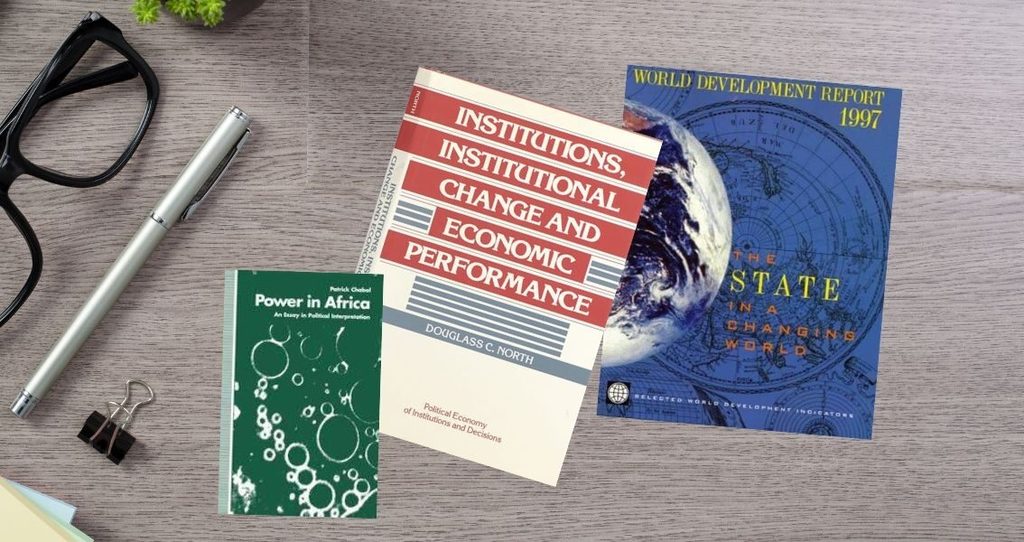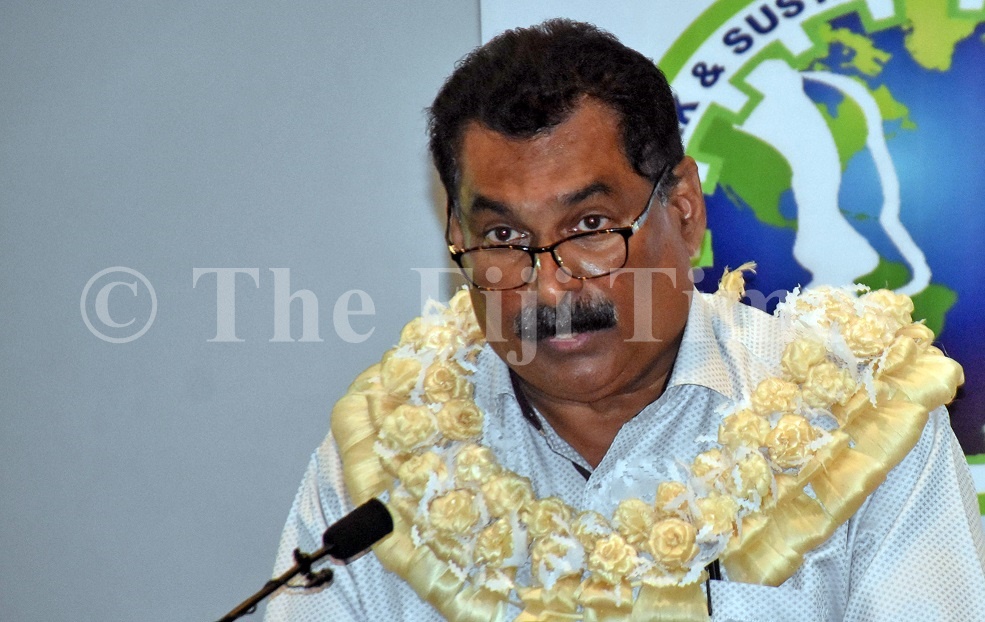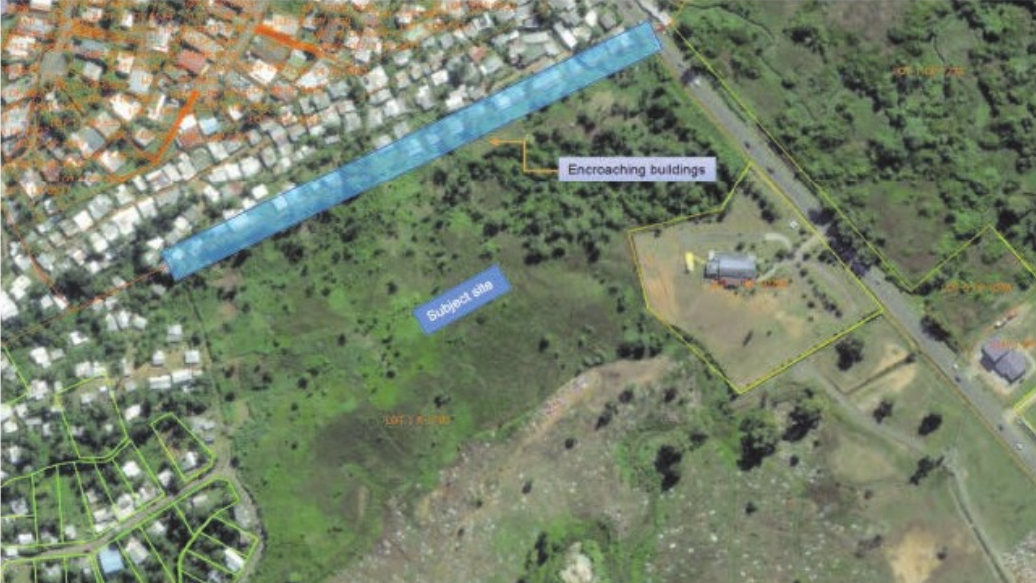The year 2025 will mark the 30th year in which I have been scribbling about governance. In this time, I have been privileged to think and write about governance for the United Kingdom’s former Department for International Development (DFID), the World Bank, AusAID/DFAT, and now for Abt Global.
Over the Christmas break I got to thinking about the ideas in governance that have kept me interested, and why these ideas matter.
Back in 1995 governance was barely a thing in development. At the time I had just finished three years in the UK’s Pacific Office in Suva as the economist and head of office. Before leaving for London, I was told that there were no economist positions vacant, but would I join a new department called the Governance and Institutions Department (GID)? Its remit was to consider issues of organisational performance and broader political economy.
I said yes. I joined GID in January 1996. We were 12 strong.
Two things were to shape my experience. First, published works, and second, one woman. Regarding the former, two documents stand out. The World Bank’s 1997 World Development Report— The State in a Changing World argued that the role of a state must be based on its “reach”: that is, its ability to deliver the key functions of a state.
Second was Douglass North’s 1993 publication Institutions, Institutional Change and Economic Performance. The first line is well known: “Institutions are the rules of the game in a society, or more formally, are the humanly devised constraints that shape human interaction.”
We know now that there are formal rules of the game (laws, rules, regulations) and informal ones (norms, customs, values), and that often informal rules are more influential than formal rules.
The woman was DFID’s Secretary of State, the redoubtable Clare Short. From her I learned that individuals and agency really matter. Not always, not everywhere, but when the circumstances are right (that is, when formal and informal institutions align) individuals can be transformational.
I was so caught up with institutions that I lost sight of the power of agency. Soon after taking over DFID, she announced her intent “to change it from a project factory into a development organisation”.
The irony is that it took me three or four years to realise that I was working in an organisation that had been transformed by the ideas — the agency — of one woman.
Over time, I discovered six ideas which have animated my work and thinking ever since. They are presented in a report, A second-hand dealer in ideas: reflections on 30 years scribbling about governance, now published by ANU’s Development Policy Centre.
Where stands “governance” today? Two points can be made. First, governance now has four interpretations.
Second, there is now an absence of intellectual leadership. From 1995 to 2015 the World Bank played this role, with support from DFID. This has gone.
The Bank’s restructure under President Kim (2012-2019) abolished the Washington department that provided intellectual direction to the governance agenda. There remain in the Bank a few brilliant thinkers and doers; some continue here in the region. But they are lone voices and admit to having no organisational heft in DC.
In the UK, the right-leaning government elected in 2010 pared back policy work in DFID. The importance of development was further eroded when the Foreign and Commonwealth Office absorbed DFID in 2020. Today, the Governance cadre in the Foreign, Commonwealth, and Development Office (FCDO) has 60 staff, less than half the number ten years ago.
A more egregious cull happened in DFAT after the 2013 “merger”. When I arrived in AusAID in September 2012 to take up the position of Principal Governance Specialist, there were 39 staff in the governance branch in five teams.
In DFAT today the number is 1.5 (full-time equivalent).
As a result of these trends, there is an intellectual vacuum of governance thinking and ideas. Some universities and think tanks have tried to respond to this vacuum. In Australia, it is the Australian National University here in Canberra and the Lowy Institute in Sydney. But their work is now harder to “socialise” within formal bureaucracies, as there are few staff members available to perform this task.
What can be done? I would suggest three modest things.
First, we need to regain sight of the instrumentality of the state. The Economist put it succinctly in its January 11, 2025 edition: “a capable state matters for economic growth” (page 11 of the Africa feature) and — with respect to Africa but the assertion applies globally — “… states are often incapable of doing things they should do while doing plenty of things they should not” (page 10).
It is not about the size of the state. It is about what the state does and how well it does it. This was the central argument of the 1997 World Development Report. What the state seeks to do in Timor-Leste will be different to what it seeks to do in Norway.
Second, academics and practitioners (including me) need to do a better job of collecting and synthesising evidence on the impact of aid in general and “governance projects” in particular. Here in Canberra, Australian governments of both political persuasions continue to minimise aid because there seems to be a prevailing view that development support “does not work”. While the ideological argument for aid is accepted (“it’s good to help people”), there is scepticism regarding longer-term development programs. Humanitarian budgets (“aid”) will rise while “development” budgets will either decline or at best stagnate.
Third, the major development actors (FCDO, USAID, the EU, the World Bank and DFAT) should reinvigorate their capability to engage with academia on ideas, and what those ideas mean for practice.
I am not optimistic. Looking at the donor landscape today it is hard to see from where change may come. Development is not a priority in any OECD Development Assistance Committee member country. Donors see aid as a means of pursuing their own interests, not as a means of poverty reduction. The world of course is different than it was in 1997 when DFID came into being: we live in a world of geo-strategic and geo-economic competition where countries pursue their own interests.
I have no problem with countries promoting their own interests. But I do have a problem with countries using aid budgets to promote their own interests rather than address problems of poverty and inequality.
I am not naïve about the chances of this happening any time soon. However, even against this background development agencies can do better. Pat Conroy, as Minister for International Development and the Pacific has talked about restoring DFAT’s development capability and allocated a small amount of money for this purpose, which is excellent – we shall watch closely if this materialises.
The FCDO still has about 500 sector specialists. The World Bank has retained staff with real intellectual gravitas.
The problem is that at the moment this does not add up to much. Most of these staff work on designing and delivering programs. It would be good if even a few of these competent and committed staff could have the time and space to think about ideas, concepts and theories, and to engage with our academic colleagues to make more persuasive and influential arguments.
Download the full report, A second-hand dealer in ideas: reflections on thirty years scribbling about governance, from the Development Policy Centre’s website.
This article appeared first on Devpolicy Blog (devpolicy.org), from the Development Policy Centre at The Australian National University.
n GRAHAM TESKEY is the leader of Abt Associates’ Global Governance practice. The views expressed in this article are his and do not necessarily reflect the views of this newspaper.
3301521






